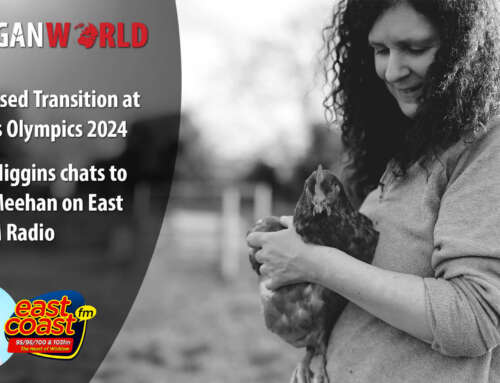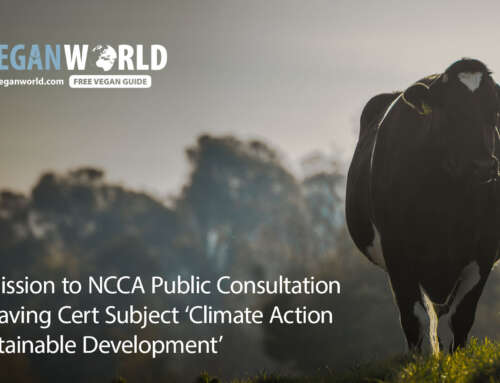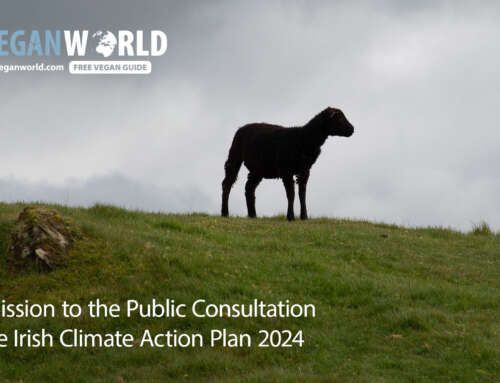Food in the Anthropocene: the EAT–Lancet Commission on healthy diets from sustainable food systems (Walter Willett et al) was published last week. It goes a long way towards supporting the animal rights view that we need rapid and complete abolition of all animal use by humans.
The report is a review of the work of 30 world-leading scientists from across the globe and its rationale is an attempt to clarify the conflicting and poorly understood advice on how we should eat. It claims to be the first full scientific consensus that defines a healthy and sustainable diet.
In June of last year, another report[i] conducted a meta-analysis of the multiple environmental impacts of 38,000 farms producing 40 different agricultural products around the world. It concluded that
“impacts of the lowest-impact animal products typically exceed those of vegetable substitutes, providing new evidence for the importance of dietary change.”
Lead author Joseph Poore is quoted as stating:
“A vegan diet is probably the single biggest way to reduce your impact on planet Earth, not just greenhouse gases, but global acidification, eutrophication, land use and water use.
“It is far bigger than cutting down on your flights or buying an electric car,” he explained, which would only reduce greenhouse gas emissions.
“Avoiding consumption of animal products delivers far better environmental benefits than trying to purchase sustainable meat and dairy,”
In 2016, the Oxford Martin Institute, examined the comparative impacts of omnivorous (standard) diet, vegetarian diet, and vegan or 100% plant diets. The report showed that the less animal products we consume the better. If a 100% plant diet (the diet vegans eat for animal rights reasons) were adopted, we could save up to 8 million lives by 2050, reduce greenhouse gas emissions by two thirds, and lead to healthcare-related savings and avoided climate damages of $1.5 trillion (US).
What’s not to like? Yet here we are almost three years later, still claiming outrage on behalf of farmers and using income from animal agriculture as a justification for ruining human health, killing billions of animals year on year, as well destroying the planet we all depend on for our survival. These days everyone seems to be jumping on the ‘vegan’ bandwagon from chefs to cosmetics companies. The most resistant to change are farmers and they will need support to do so, not least a radical change in subsidies so that they are assured that change will be economically secure for them.
A glaring omission in these reports is consideration of the rights violations inherent in using and killing animals. Indeed, their primary concern is the humanocentric protection of human health and the environment that sustains humans.
They do not consider the psychological health of humans who engage in everyday practices that sustain something so violent that when captured on camera it invariably carries a graphic violence content alert and is potentially traumatising to those who view it.
Neither is there any consideration of the psychological status of humans who cling onto myths (especially the myth that other species are not sentient and do not have rights), in order to justify such trivial aspects of our lives as habit, convenience and taste.
Psychological intervention strategies will be necessary to change how we live. Among them, the most important strategies will focus on cognitive and affective change in how we think and feel about eating animals’ bodies, milk and eggs. We currently see other animals as food. Vegan education helps us engage in a radically new way of thinking and feeling about them, not as food or objects that exist to sustain us, but as unique, thinking, feeling individuals who share our fundamental right not to be owned, used or killed.
Evidence based vegan education that focuses on animal rights as a social justice issue, can rapidly and completely abolish all human use of other animals and, in doing so, help us meet the targets outlined in these reports. It is as necessary as education that addresses the practical changes of environmentally friendly plant-based agriculture, and as vital as education on how to achieve optimum nutritional on a plant diet.
Sandra Higgins of Go Vegan World commented on some of these points on the Lancet report on Virgin Media One news last week.
[i] Reducing food’s environmental impacts through producers and consumers, Poore, J and Nemecek, T (2018) Science: 987-992.






